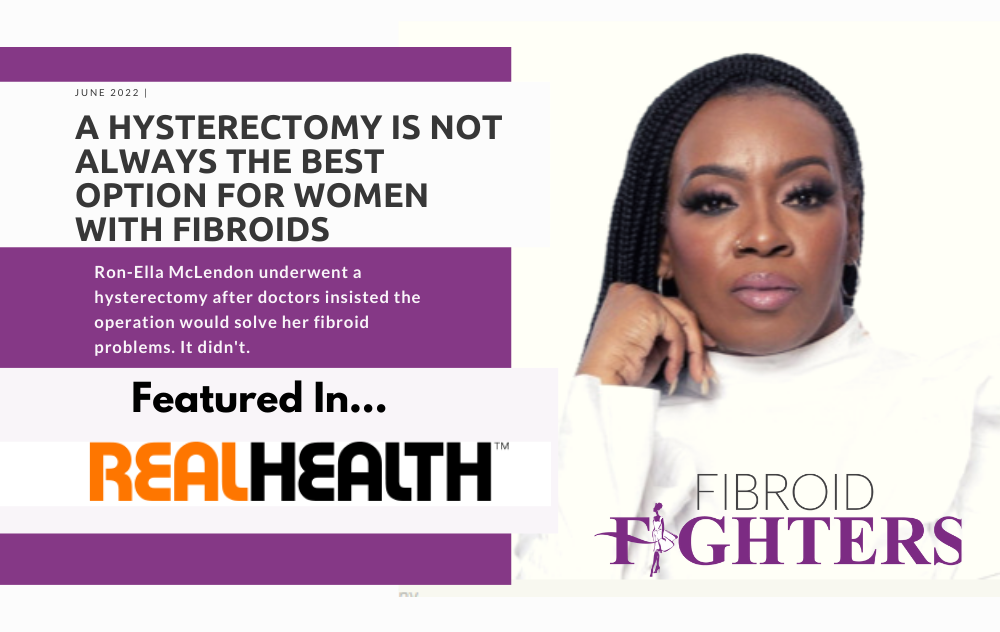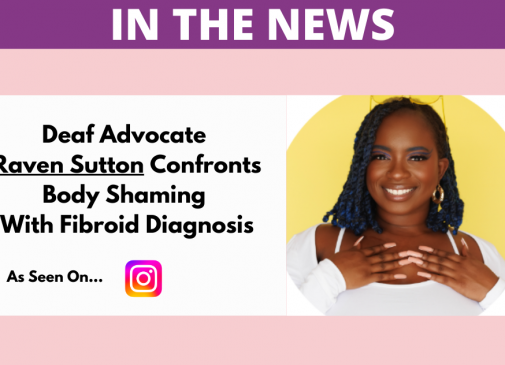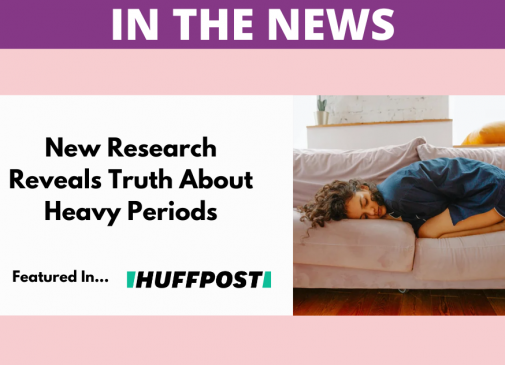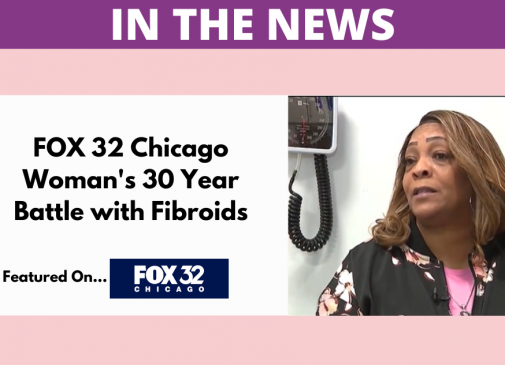
Ron-Ella McLendon first experienced menstrual cycle difficulties while she was in high school. “I was going through three to four pads each hour, and I used to pass out a lot in school,” recalls the government contractor, life coach and author, age 43. “Doctors would tell me that my iron was low.
In McLendon’s family circles, the health condition wasn’t discussed much. “I’d heard of fibroids, but I never knew in depth what they were,” she says. “Talking about it was kind of taboo.”
“Patients seeking information about fibroid treatment other than removing their uterus tell us that they have received little if any information on hysterectomy alternatives and the risks that a major surgery poses,” says Yan Katsnelson, MD, founder of Fibroid Fighters Foundation, an advocacy group dedicated to educating the public about the impact of fibroid disease and safe and effective minimally invasive treatments for the condition.
Read the entire article here:
https://www.realhealthmag.com/article/hysterectomy-option-women-fibroids







